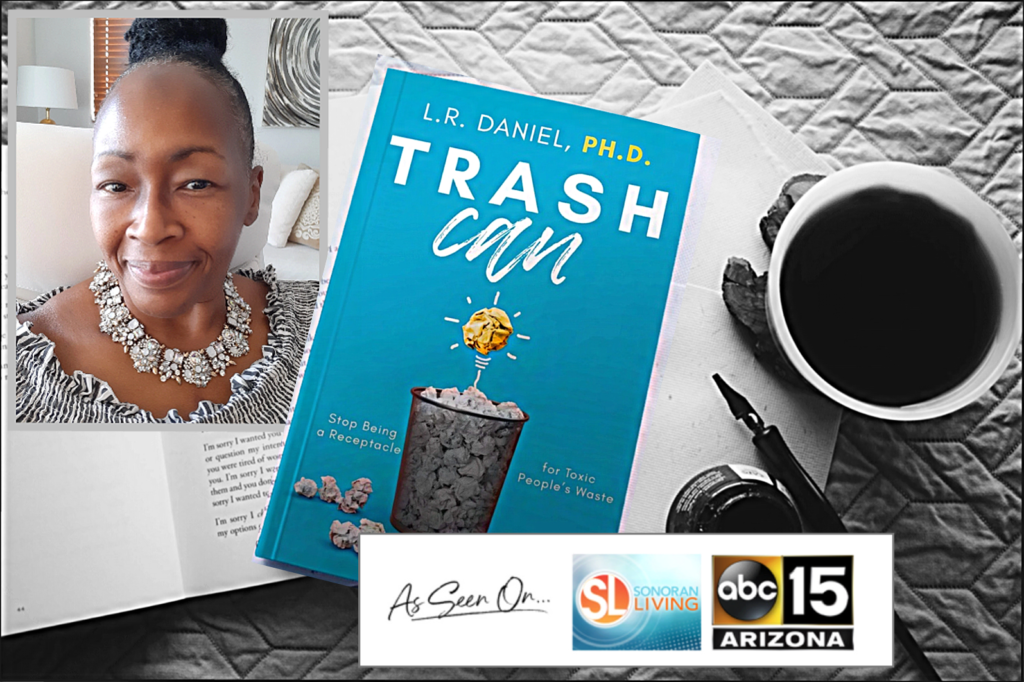Domestic abuse increased dramatically during the 2020 lockdowns. In fact, according to the National Commission on Covid-19 and Criminal Justice, domestic violence incidents rose in the United States by about 8.1% after pandemic-related lockdowns were imposed.
Phoenix based school teacher, Dr. L.R. Daniel, understands how the stress and impact of toxic relationships had severe consequences for students and their families during the lockdowns. Daniel discovered that teachers across the nation were hearing students’ shocking stories of their lockdown experiences that included economic hardship, physical and verbal abuse, stressed relationships, depression, and losing loved ones to death.
Dr. Daniel decided to do what she could to help herself, her colleagues, her students, and their parents because they were struggling on several levels. She and her peers realized that many of the victims didn’t have any idea what to do to change their situation. That is when she set out to write a book, Trash Can: Stop Being a Receptacle for Toxic People’s Waste, about how to identify the toxic relationships that hurt families and how to cope with them (especially if leaving them is not an option.)
“It’s difficult to recognize when a person is being toxic,” Dr. Daniel says. “A toxic person is never toxic on purpose. They may not have the intention to harm you. It is their internal turmoil that causes a change in their behavioral pattern. In extremely rare cases, a person behaves toxic on purpose but you are not equipped with the right tools to handle someone’s dark emotions.”
One of the first things to do in order to improve the situation is that a person must know how to recognize if they are dealing with someone who is toxic. Dr. L.R. Daniel recently shared says signs and behavioral patterns that help to identify a person with toxic traits in an interview with Sonoran Living.
1. They are manipulative. Toxic people will go to any extent to achieve what they want. It’s all about their needs and wants. They will bend the truth, lie, and even exaggerate something completely irrelevant.
2. They like to play “the victim.” A toxic person will always think that they are being victimized. Even if it’s their actions that hurt them, they will shift the blame on someone else. They won’t take any accountability for their feelings. Rather, they find ways to project their feelings onto others.
3. They are inconsistent. A toxic person may say one thing but does something else. Their words and actions never match.
4. They look for drama and conflict. A toxic person can never handle peace and calmness for too long. They are uncomfortable feeling any happy or positive emotion or situation and actually thrive off pain, conflict, and drama.
5. They are consistently negative. They are never grateful or content with what they have. They are extremely calculative in what they do and make sure that they get the maximum benefit from any situation. Even when they get the most, they complain about how they didn’t get everything they wanted.
Once the traits of a toxic person are identified, Daniel says that it’s important to not focus on the person that’s causing the problem, but take the energy being invested on the circumstance and redirect it toward self care. She suggests, “Own up to what you can work on and set small goals to create a life that will take you on a journey for wholeness.”
Research from 2020 identifies Adverse Childhood Experiences (ACE) for high school students and young adults as a significant health dilemma in the United States. A multifaceted approach is recommended to protect individuals from abusive relationships and Daniel’s book, Trash Can: Stop Being a Receptacle for Toxic People’s Waste provides steps to not only identify toxic behavior, but also ways to cope in the midst of these difficult situations.
Depending on what types of issues people are facing at home in their relationships, Daniel’s book may be able to help provide guidance and navigate solutions on how to work on the issues that are causing conflict. She says, “This book is extremely personal to me. I know what it’s like to be in this position and feel like there’s no hope for tomorrow. But if I can get out of something toxic, I’m sure you can, too.“
Dr. L.R. Daniel has taught middle and high school adolescents for over thirty years. According to Dr. Daniel, “Helping people free themselves from toxic situations and people is essential for me. It was how I managed to finally step into my own power and not waste my energy on people who never truly valued me.” Her book is available at TrashCanBook.com.
